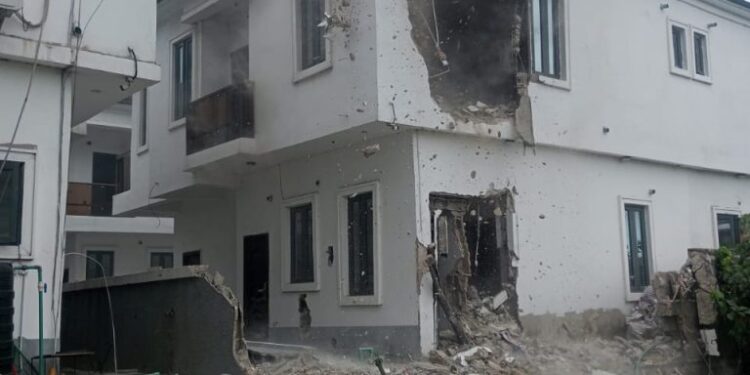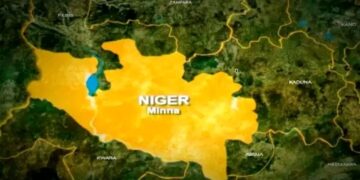the Lagos State Government reaffirmed its commitment to enforcing the right-of-way for drainage channels across the state, signaling a decisive move against illegal constructions that threaten the environment and public safety.
This announcement came during an on-site assessment by Mr. Tokunbo Wahab, the Commissioner for the Environment and Water Resources, who emphasized the need for immediate action to restore these critical infrastructures.
Mr. Wahab highlighted the government’s determination to reverse the negative impacts of unauthorized constructions that have disrupted the natural landscape. He revealed that contracts had already been awarded for restoration projects in key areas, particularly around Ishashi and Oke-Odan, where illegal buildings have encroached upon drainage channels. “We have witnessed a troubling trend of individuals deliberately constructing on these channels,” he stated, indicating that notices had been served to property owners prior to enforcement actions.
Enforcement measures were set to commence immediately, as Wahab noted that many property owners had ignored previous contravention notices. He pointed out that violations along the System 40 drainage channel in the Ojo Local Government Area had resulted in significant flooding issues, necessitating a robust governmental response. The commissioner reiterated that the government would enforce a seven-meter drainage setback across all drainage channels, with a specific emphasis on a standard 15-meter setback at the Alaba International Market outfall.
“Let this serve as a warning: we are not backing down,” Wahab declared, reinforcing the importance of compliance with drainage regulations. He acknowledged the role of local lawmakers, such as Mr. Olusegun Ege, who advocated for a slightly reduced setback but ultimately supported the enforcement of established guidelines.
Wahab elaborated on the importance of urban planning, stating, “The development of any city is a deliberate plan; it is not magical. Things will not happen unless the plan is enforced.” He noted that the ministry had engaged in extensive public sensitization efforts to inform residents and developers about the significance of adhering to drainage regulations. “Where there is a law in place, there is always provision for enforcement,” he added, urging vigilance among developers and homeowners to avoid encroaching on public drainage infrastructure.
The Special Adviser to the Governor on Environment, Mr. Olakunle Rotimi-Akodu, echoed Wahab’s sentiments, lamenting the detrimental practices of some developers who convert drainage rights-of-way into usable land. He stressed that such actions not only jeopardize public safety but also expose other property owners to risks of flooding and property loss. “We must all work together to support the government’s vision for a safe, clean, and sustainable Lagos,” he urged.
Chief Nnamdi Amajioyi, President-General of the Alaba International Market, acknowledged the market’s ongoing challenges with flooding during rainy seasons. He expressed optimism that by cooperating with state officials and adhering to the ministry’s guidelines, flooding problems could be effectively mitigated in the future.
The site visit included various critical drainage channels, including the Isheri/Aiyetoro/Ologe Primary Channel and the Alaba Rago Primary Channel, where officials assessed the current conditions and outlined plans for restoration.
The presence of key figures, such as the Permanent Secretary of the Office of Drainage Services, Mr. Mahamood Adegbite, underscored the seriousness of the initiative.









